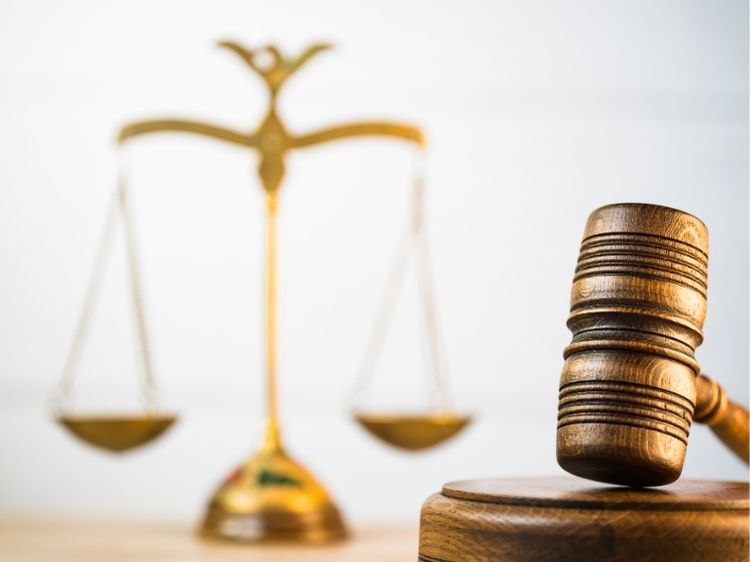The process of testifying in court is usually presented as an intense and stressful experience. Many are unsure if they are legally required to testify, particularly when it could result in negative consequences for their professional or personal lives. The answer is contingent on a variety of aspects, such as the nature that the case is in, character of the testimonies and the particular legal protections that are in place. Knowing what your legal rights are and obligations will aid you in understanding this difficult problem efficiently.
Legal Obligation to Testify: When the Law Compels You
In several legal systems, people can be required to give evidence through an order of subpoena, which is a court order that requires an individual’s appearance before a judge to testify. Refusing to comply with a subpoena could be punished with legal consequences that include infractions of court or fines, and even prison time. The extent to which the law may oblige someone to provide evidence is contingent on a variety of factors.
Witnesses in civil and criminal proceedings may be required to give evidence if their opinions are considered to be essential to the process. In criminal proceedings, both the defense and prosecution rely on testimony from witnesses to prove the truth and support their arguments. Similar to civil cases, civil cases typically require witnesses to help clarify disagreements and provide evidence or confirm assertions made by either side. Whatever the subject of the matter court will generally require the compliance of legally issued subpoenas.
Exceptions and Protections Against Forced Testimony
While courts are able to require testimony, a number of legal safeguards are in place to avoid self-incrimination or undue hardship. A few of these well-known safeguards are the Fifth Amendment in the United States that allows people to not testify if they believe their testimony could lead to incrimination. This constitutional right guarantees that nobody is compelled to testify against themselves in a criminal trial.
Attorney-client privilege is yet another important exemption. Conversations between an attorney and client are considered confidential, which means that neither can be required to divulge confidential information. In the same way, clergy-penitent and doctor-patient privileges safeguard confidential conversations from being used as evidence in court.
Spousal privilege is also a reality in a variety of jurisdictions, which allows individuals to not give testimony against their spouse under certain situations. This privilege differs based on whether the matter involves legal or civil proceedings and also if the testimony concerns confidential communications between spouses. In the event of domestic violence or other crimes that are committed by a partner, the courts can override this privilege.
Can You Refuse to Testify as a Witness?
Witnesses who are served with an order to appear may be limited in their choices to refuse to be called to testify. Although it is true that the Fifth Amendment protects against self-incrimination however, it is not applicable when the testimony is not exposing witnesses to criminal liability. If a witness tries to avoid giving evidence without legal grounds, they could be found guilty of contempt in the court. This could lead to penalties or even imprisonment until they are able to follow the court’s instructions.
There are instances where witnesses could be in extreme emotional distress or security concerns arising from being called to testify. In these situations the courts can provide protective measures such as closed-door testimony or witness protection programs or even anonymity in cases that involve whistleblowers, victims of violence, and informants.
Whistleblowers and Compelled Testimony
Whistleblowers typically face unique legal hurdles when they testify against powerful people or organizations. Certain laws, like Whistleblower Protection Act in America, Whistleblower Protection Act in the United States, provide safeguards against retaliation, certain whistleblowers are afraid of personal or professional consequences for their statements. Courts could grant protection orders or permit anonymous testimony to reduce the risk, however generally speaking an appropriate subpoena must be complied with.
Expert Witnesses and Legal Obligations
Expert witnesses, such as doctors as well as forensic analysts and experts from the industry, could be required to testify in situations in which their expertise is essential. In contrast to ordinary witness, specialists are typically asked to give professional opinions instead of firsthand reports of the events. In certain instances courts might call expert witnesses to testify if their expertise is crucial to the matter, but they are usually compensated to testify.
Refusing to Testify: Potential Consequences
Refusing to testify in court without the legal authority to do so can result in serious penalties. If a person is found in contempt of court can be penalized, which can escalate as time passes, and could result in continued confinement until a compliance goal is reached. Certain individuals might try to avoid appearing in court by leaving the court however, this could cause legal problems such as extradition and further costs.
The courts may also grant immunity agreements for witnesses whose testimony is vital, but may cause self-incrimination. In these agreements, witnesses are granted the legal right to defend themselves from prosecutor based upon the evidence they give. This guarantees that the most important evidence is given while shielding witnesses from legal consequences.
Conclusion: Understanding Your Legal Rights and Responsibilities
The question of whether law allows you to be a witness is a complex one that depends on different legal concepts as well as privileges and circumstances. Although courts typically have the power to force witnesses through subpoenas or other legal means, exceptions are made to shield individuals from injury or from self-incrimination. Understanding the legal implications can assist individuals to make informed choices when confronted with an obligation to give evidence. If you are in this circumstance, seeking out legal advice will help you understand the law and help ensure that your rights are respected.

